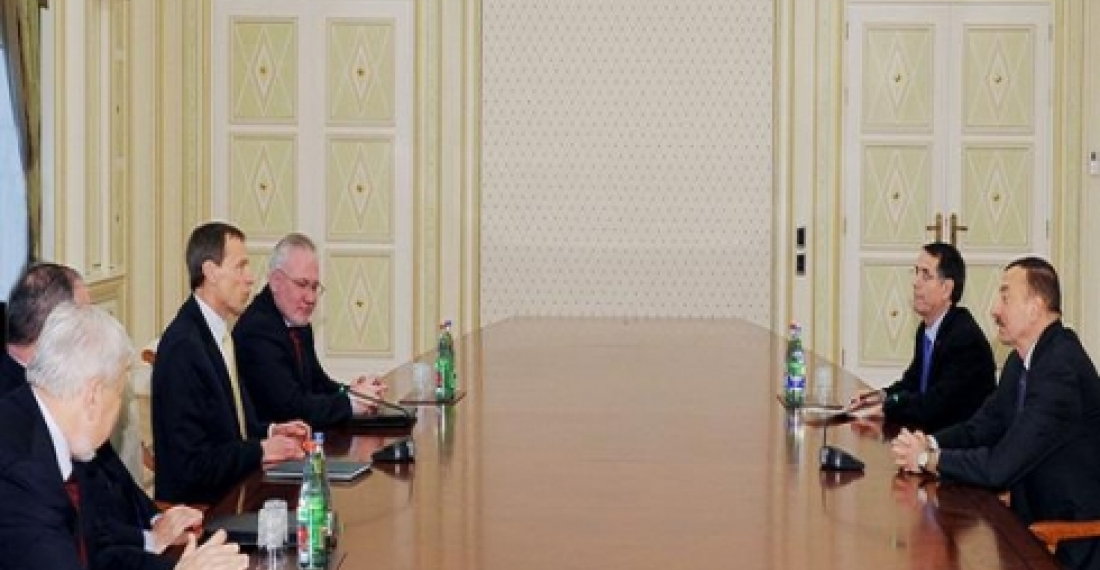Дипломаты, представляющие три страны сопредседателей Минской группы ОБСЕ, провели очередной раунд двусторонних переговоров с лидерами сторон, вовлеченных в карабахский конфликт. За последние несколько дней дипломаты побывали в Баку, Ереване и Степанакерте, где они встретились с президентами и министрами иностранных дел Армении и Азербайджана и руководством самопровозглашенной Республики Нагорный Карабах.
Посредники пытаются сгладить разногласия между сторонами в преддверии очередного раунда прямых переговоров, но не о каком прогрессе не было сообщено до сих пор.
Источник: commonspace.eu
Фото: Дипломаты Минской группы ОБСЕ с президентом Азербайджана Ильхамом Алиевым в Баку 5 марта 2012 года (фото любезно предоставлено пресс-службой президента Азербайджана)
Analysis
Челночная дипломатия по Карабаху продолжается. Дипломаты Минской группы ОБСЕ провели очередной раунд встреч, чтобы попытаться уменьшить разногласия







